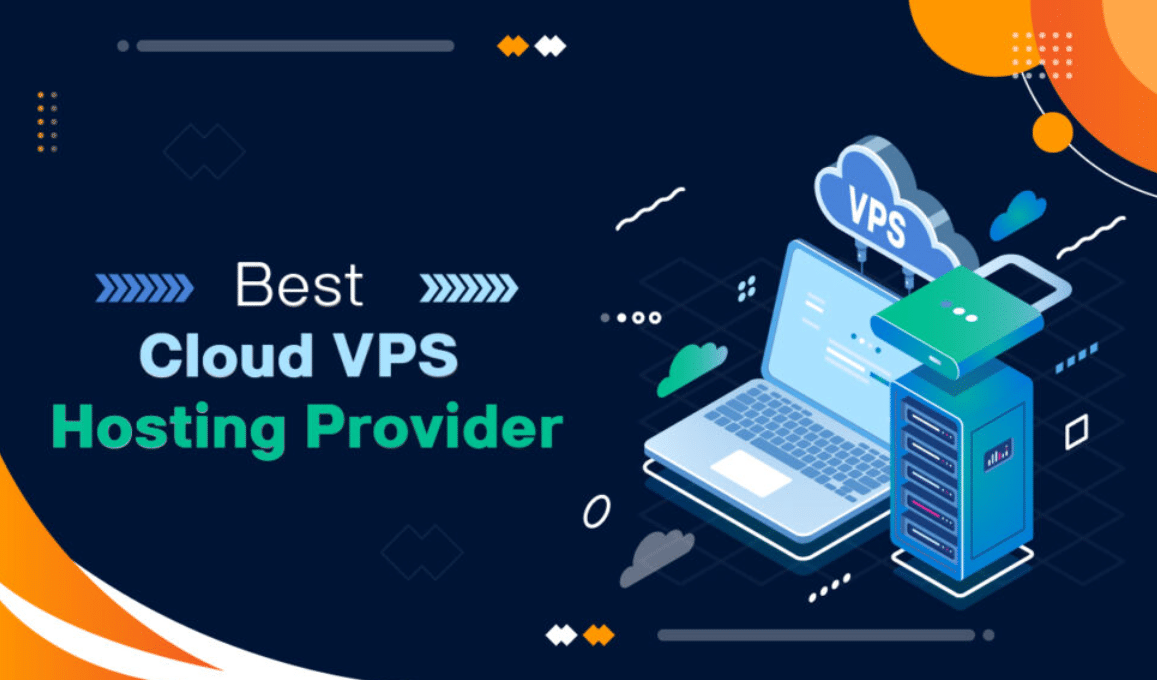Best Cloud Server – In the digital age, businesses and individuals alike are increasingly relying on cloud infrastructure to host websites, run applications, and store data. With the explosive growth of cloud computing, choosing the best cloud server can be a challenging task, especially when there are numerous providers offering a wide array of services and pricing plans. This article delves into what makes a cloud server the best for different needs, evaluates the leading providers in the market, and offers guidance on selecting the most suitable solution for your specific use case.

What Is a Cloud Server?
A cloud server is a virtual server (rather than a physical server) running in a cloud computing environment. It is built, hosted, and delivered via a cloud computing platform through the internet and can be accessed remotely. Cloud servers offer the same functionalities as physical servers but with the added flexibility of being scalable, cost-efficient, and accessible from anywhere.
There are generally three main types of cloud servers:
-
Public Cloud: Shared infrastructure operated by third-party providers (e.g., AWS, Google Cloud).
-
Private Cloud: Dedicated infrastructure used exclusively by one organization.
-
Hybrid Cloud: A mix of both public and private cloud solutions.
Key Features to Look for in the Best Cloud Server
When evaluating cloud server providers, consider the following features to determine the best fit:
1. Performance and Reliability
A top-tier cloud server should offer high uptime (typically 99.9% or above), fast loading speeds, and minimal latency. Look for providers that use powerful data centers with redundant systems and global distribution.
2. Scalability
Your cloud server should grow with your business. Scalability ensures that you can easily add or reduce resources (CPU, RAM, storage) based on demand without experiencing downtime.
3. Security
Security is critical when choosing a cloud server. Look for providers that offer:
-
Data encryption (in transit and at rest)
-
Firewalls and DDoS protection
-
Compliance with standards (like GDPR, HIPAA, ISO)
-
Regular backups and disaster recovery plans
4. Support and Documentation
Having 24/7 technical support with experienced engineers can make a significant difference. In addition, well-documented APIs, tutorials, and knowledge bases can help you manage your cloud infrastructure more efficiently.
5. Pricing Transparency
Cost-effectiveness is important, but so is transparency. The best cloud server providers should offer predictable pricing models with clear information on usage charges.
6. Customization and Control
Look for cloud servers that provide full root access or administrative privileges, allowing you to configure the server environment according to your requirements.
Top Cloud Server Providers in 2025
Here are some of the best cloud server providers in 2025, based on performance, features, pricing, and reputation.
1. Amazon Web Services (AWS)
Overview: AWS is the market leader in cloud computing, offering a wide range of services including EC2 instances, serverless architecture, machine learning tools, and more.
Pros:
-
Highly scalable and reliable
-
Global infrastructure
-
Extensive service ecosystem
-
Strong security protocols
Cons:
-
Can be complex for beginners
-
Pricing can get expensive with scaling
Best For: Enterprises and developers needing advanced features and scalability.
2. Microsoft Azure
Overview: Azure is a strong competitor to AWS and is known for its seamless integration with Microsoft products like Windows Server, Active Directory, and Office 365.
Pros:
-
Excellent for hybrid cloud setups
-
Powerful analytics and AI tools
-
Strong enterprise support
Cons:
-
Slightly steeper learning curve
-
Cost tracking can be difficult
Best For: Businesses already using Microsoft products or needing hybrid cloud solutions.
3. Google Cloud Platform (GCP)
Overview: Google Cloud is known for its big data, AI, and machine learning capabilities, along with its high-performance infrastructure.
Pros:
-
Best-in-class AI and data tools
-
Transparent pricing
-
Strong network performance
Cons:
-
Fewer data center regions compared to AWS
-
Limited third-party integrations
Best For: Startups and data-driven businesses.
4. DigitalOcean
Overview: DigitalOcean is a developer-friendly platform that focuses on simplicity and performance, especially for small to medium-sized businesses.
Pros:
-
Easy to use
-
Predictable pricing
-
Developer-friendly documentation
Cons:
-
Less feature-rich than major players
-
Limited enterprise tools
Best For: Startups, developers, and small businesses looking for simplicity and cost-efficiency.
5. Linode (now part of Akamai)
Overview: Linode offers powerful cloud servers at affordable prices, targeting developers and small businesses.
Pros:
-
Affordable pricing
-
Easy to deploy and manage
-
Good performance
Cons:
-
Fewer advanced features
-
Limited managed services
Best For: Developers and small teams with budget-conscious needs.
6. IBM Cloud
Overview: IBM Cloud offers powerful tools for AI, blockchain, and enterprise computing, often chosen for large-scale applications and industries like finance and healthcare.
Pros:
-
AI and machine learning capabilities
-
Industry-specific solutions
-
Strong security and compliance
Cons:
-
Expensive for small-scale users
-
Less intuitive interface
Best For: Enterprises with complex computing needs.
How to Choose the Right Cloud Server for Your Needs
When choosing the best cloud server, you need to assess your technical requirements, budget, and long-term goals. Here’s a step-by-step approach:
Step 1: Define Your Use Case
Are you hosting a website, developing applications, running a data-heavy analytics platform, or building a SaaS product? Your use case will help narrow down your options.
Step 2: Estimate Resource Needs
Determine how much CPU, RAM, storage, and bandwidth you need now and in the near future. Make sure the provider allows for easy resource upgrades.
Step 3: Evaluate Support and SLA
Check the provider’s service-level agreement (SLA), response times, and support options. For mission-critical workloads, 24/7 support is essential.
Step 4: Test the Platform
Many cloud providers offer free trials or low-cost starter packages. Use them to test performance, UI/UX, and customer support.
Step 5: Review Community and Documentation
A strong community and comprehensive documentation can help you resolve issues quickly and learn faster.
Common Mistakes to Avoid
-
Choosing solely based on price: Cheap cloud servers may lack reliability, speed, or support.
-
Ignoring scalability: Your needs may grow. Ensure your provider can grow with you.
-
Overlooking security: Never compromise on data protection and compliance standards.
-
Neglecting backup and disaster recovery: Always plan for failure scenarios.
Final Thoughts
The best cloud server isn’t a one-size-fits-all solution. It depends on your specific needs, technical expertise, and budget. While AWS, Azure, and Google Cloud dominate the high-end market with advanced features and scalability, smaller providers like DigitalOcean and Linode offer simplicity and affordability ideal for developers and small teams.
Choosing the right cloud server can empower your business with speed, flexibility, and resilience. Invest time in evaluating your options, and you’ll reap the long-term benefits of a solid cloud infrastructure that supports your goals today—and scales with your ambitions tomorrow.
